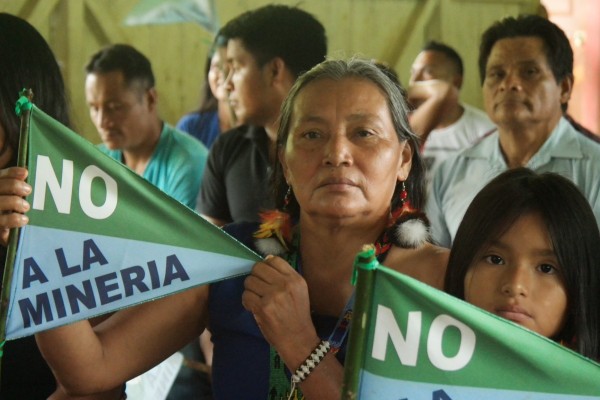Trudeau omits Canada’s support for Idi Amin on anniversary of Ugandan Asian expulsion
Amin’s reign between 1971 and 1979 resulted in the deaths of around 250,000 Ugandans

Idi Amin served as the third president of Uganda from 1971 to 1979. Photo from Wikimedia Commomns.
Following the fiftieth anniversary of President Idi Amin’s expulsion of South Asians from Uganda in 1972, Prime Minister Justin Trudeau released a statement which, severed from historical context, reflects very well on Canada’s response.
“Canada acted swiftly,” Trudeau said, sending “immigration officers to Uganda to help with processing, and Ugandans of South Asian descent started arriving in Canada the following month. After a 19-hour flight, the first group of South Asian Ugandans landed at the Longue-Pointe detachment of Canadian Forces Base Montréal, where they were provided hot food, warm clothing, and a new country to call home.”
At the end of his statement, Trudeau declared that “Canada will continue to honour our longstanding tradition of protecting those fleeing conflict and persecution—no matter who they are and where they are from.”
Prime Minister Justin Trudeau’s statement on the 50th anniversary of the Ugandan Asian resettlement: https://t.co/F45d7mpJDL
— CanadianPM (@CanadianPM) August 4, 2022
Unsurprisingly, the prime minister’s statement totally omits Canada’s diplomatic support for Amin’s 1971 coup against his predecessor, the left-leaning Milton Obote, or the fact that the Canadian government collaborated with Amin on business investment, notably mining, especially during the early part of his reign. This collaboration continued following Amin’s expulsion of Uganda’s South Asian population.
Overall, Ottawa allied with the British to back Amin’s rise to power, viewing him as a preferable alternative to Obote. While accepting some refugees of Asian descent, Amin’s expulsion of this group did not result in a rupture of Canada-Uganda ties. Rather, this occurred when Amin began to nationalize some Canadian business holdings near the end of his reign in an attempt to shore up domestic support for his government.
In the 1970s, the largest mining enterprise in Uganda was Kilembe Mines Ltd., owned 70 percent by a subsidiary of the Canadian mining company Falconbridge. Operational since 1956, Kilembe was an old project of ousted Falconbridge founder Thayer Lindsley. The company paid no income taxes in Uganda until 1965, by which point the mine’s initial investment was recovered, and in subsequent years it produced tens of millions in profit for Falconbridge. By 1969, Kilembe’s annual sales reached $26 million, making it the largest company in Uganda’s foreign exchange accounts (all of this is detailed in John Deverell’s Falconbridge: Portrait of a Canadian Mining Multinational).
Having been allowed to grow to this size by the left-leaning Obote administration, the Ugandan government came to view Kilembe as an engine for wealth redistribution and began asserting greater control over this company and others. These efforts worried Western governments. A British Foreign Office memo stated that Obote’s left turn had “serious implications for British business in Uganda and Africa generally” because “there is a danger that other countries will be tempted to try and get away with similar measures with more damaging consequences for British investment and trade.”
Although Obote’s turn toward nationalization was popular within Uganda and was not illegal, Britain nonetheless backed his overthrow. As historian Mark Curtis states, “British officials were aware that Obote’s planned nationalisation was entirely legal but this was not the point—these measures were a direct challenge to British business interests.”
Milton Obote was independent Uganda’s first prime minister. Photo from Flickr.
Idi Amin’s reign (1971-1979) resulted in the deaths of around 250,000 Ugandans, but even without the gift of hindsight, the character of his rule was clear from the government’s early actions. Nevertheless, CIDA’s liaison officer in Uganda, Catrina Porter, lavished praised on the new government. “Yes, there was a coup,” she said, “and it was a move that promises to be an improvement. The new administration favours Democracy and Western Civilization’s Democracy, while the former one favoured the Communists.” She added: “General Amin’s gone on record as saying he loves Canada and the Commonwealth. He also vowed that his country of Uganda would have democratic elections soon. The British and Americans have recognized him as the Ugandan government and so do we.”
Although a democratic election never occurred under Amin, he did grant one important concession to “Western Civilization’s Democracy”: he returned the Kilembe mine to Canadian ownership.
On August 4, 1972, Amin announced the expulsion of Uganda’s South Asian population. He gave them ninety days to leave the country. Numerous Western countries permitted entry to members of the expelled population, but as the Canadian Museum of Immigration at Pier 21 points out, Canada moved slowly in processing Ugandan Asians because of “marked public opposition to the exercise and fearing a backlash if the Asians were granted special concessions.” Ultimately, Canada resettled around 7,000 Ugandan Asian refugees.
Ten months after Amin announced the expulsion of Uganda’s South Asian population, the Canadian high commissioner in Nairobi paid a visit to Uganda. Rather than pressing Amin on the issue, the Canadian representative expressed his concern for the investments of the Toronto-based Bata Shoes and the Falconbridge mining company. A government cable released by WikiLeaks reads:
CANADIAN HIGH COMMISSIONER OLIVER MET WITH PRESIDENT AMIN JUNE 29 TO DISCUSS GOU TAKE-OVER OF BATA SHOE FIRM. AMIN REVERSED EARLIER DECISION AND ORDERED THAT A NEW PARTERSHIP ARRANGEMENT (51 PERCENT BATA, 49 PERCENT GOU) BE WORKED OUT…OTHER MAJOR CANADIAN INVESTMENT IN UGANDA, KILEMBE MINES (70 PERCENT FALCONBRIDGE OWNED) IS DOING WELL.
Relations between the Trudeau and Amin governments went well for many years, but the alliance was doomed to fail. Near the flailing end of his rule, Amin attempted to boost his domestic popularity by re-nationalizing the Kilembe mine. Then, in 1978, Ugandan incursions into Tanzania provoked a declaration of war from Tanzanian President Julius Nyerere. The subsequent conflict precipitated Amin’s removal and the return of Obote to the presidency. By that time, the resources of the Kilembe mine were largely exhausted. Operations ceased in 1982.
Trudeau’s rosy statement on Canada’s response to the expulsion of South Asians from Uganda is not history—it is historical whitewashing. If one truly wanted to learn about the history of this humanitarian crisis, one would have to first understand how Amin himself came to power, a story which proves that Canadian foreign policy has never been preoccupied by questions of human rights.
Owen Schalk is a writer based in Winnipeg. He is primarily interested in applying theories of imperialism, neocolonialism, and underdevelopment to global capitalism and Canada’s role therein. Visit his website at www.owenschalk.com.










